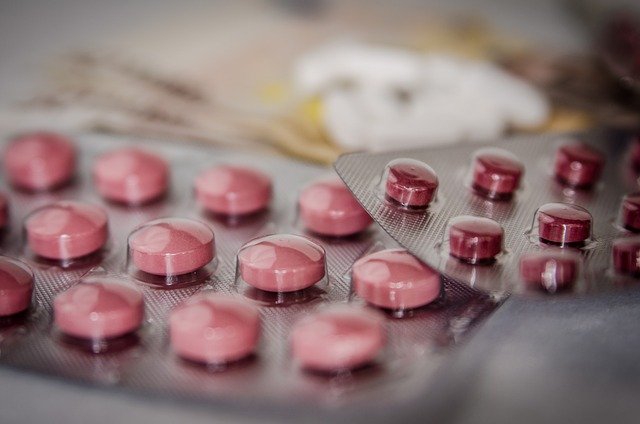Explore 5 Medications That Could Cause Kidney Damage
Kidney health is a crucial aspect of overall well-being that can be significantly impacted by certain medications. While many prescription and over-the-counter drugs are essential for treating various conditions, some carry risks of kidney damage, especially with prolonged use or in vulnerable individuals. Understanding which medications might affect kidney function is vital for patients with existing kidney concerns or those taking multiple medications.

Kidney damage from medications can range from mild, reversible changes to severe injury requiring dialysis or transplantation. The kidneys filter waste from the blood and are particularly vulnerable to drug toxicity since they process and eliminate many medications from the body. Recognizing potentially harmful medications and working closely with healthcare providers can help minimize risks while still receiving necessary treatments.
This article is for informational purposes only and should not be considered medical advice. Please consult a qualified healthcare professional for personalized guidance and treatment.
Non-Steroidal Anti-Inflammatory Drugs (NSAIDs) and Kidney Health
Non-steroidal anti-inflammatory drugs (NSAIDs) are among the most commonly used medications worldwide for pain, inflammation, and fever. This category includes both prescription and over-the-counter options such as ibuprofen (Advil, Motrin), naproxen (Aleve), aspirin, and celecoxib (Celebrex). While generally safe for short-term use in healthy individuals, NSAIDs can pose significant risks to kidney function.
NSAIDs can reduce blood flow to the kidneys by inhibiting prostaglandins, compounds that help maintain kidney blood vessels’ dilation. This reduced blood flow can lead to acute kidney injury, especially in people who are dehydrated, elderly, or have existing kidney disease. Long-term NSAID use has been associated with chronic kidney disease and progression to kidney failure in some patients. Those with heart failure, liver disease, or who are taking certain blood pressure medications may face heightened risks.
Antibiotics That May Affect Kidney Function
Certain antibiotics, while life-saving for serious infections, can potentially damage kidney structures. Aminoglycosides (such as gentamicin, tobramycin, and amikacin) are particularly known for their nephrotoxic potential. These medications can accumulate in kidney cells and cause damage to the tubules that filter blood.
Other antibiotics with potential kidney effects include vancomycin, colistin, and some cephalosporins. Risk factors for antibiotic-induced kidney damage include advanced age, existing kidney disease, dehydration, and concurrent use of other nephrotoxic medications. Careful dosing, monitoring of kidney function during treatment, and proper hydration can help mitigate these risks when these antibiotics are necessary.
Contrast Dyes Used in Imaging Procedures
While not traditional medications, contrast agents used in imaging studies like CT scans and angiograms deserve mention due to their potential impact on kidney function. Iodinated contrast media can cause contrast-induced nephropathy (CIN), a form of acute kidney injury that typically develops within 48-72 hours after contrast administration.
Patients with diabetes, existing kidney disease, dehydration, or advanced age face higher risks from contrast agents. Preventive strategies include proper hydration before and after the procedure, minimizing contrast volume, and sometimes administering protective medications like N-acetylcysteine. Alternative imaging techniques that don’t require contrast may be appropriate for high-risk individuals when possible.
Blood Pressure and Heart Medications to Monitor
Certain medications used to treat hypertension and heart conditions can affect kidney function, particularly when used improperly or in vulnerable patients. Angiotensin-converting enzyme (ACE) inhibitors and angiotensin II receptor blockers (ARBs) work by affecting kidney blood vessels to lower blood pressure. While often beneficial for kidney health in the long term, these medications can cause acute kidney problems in specific situations like dehydration or when kidney arteries are narrowed.
Diuretics, especially potent loop diuretics like furosemide (Lasix), can sometimes lead to dehydration and electrolyte imbalances that stress the kidneys. Additionally, some heart medications like certain calcium channel blockers may occasionally impact kidney function. Regular monitoring of kidney function and electrolytes is essential when taking these medications.
Chemotherapy Drugs and Their Impact on Kidneys
Many cancer treatments can potentially harm kidney tissue due to their potent effects on rapidly dividing cells. Platinum-based chemotherapy drugs like cisplatin and carboplatin are known for their nephrotoxic potential. Other chemotherapeutic agents with kidney effects include methotrexate, ifosfamide, and some targeted therapies.
Cancer patients often receive hydration protocols and kidney-protective measures before, during, and after treatment to minimize damage. Kidney function is typically monitored closely throughout chemotherapy. The risk-benefit analysis for these medications is particularly important, as the potential benefits of treating life-threatening cancer often outweigh the risks of kidney effects.
Medication Management for Kidney Health Protection
Protecting kidney health while taking necessary medications requires a collaborative approach between patients and healthcare providers. Regular kidney function testing through blood and urine tests can help identify problems early. Medication dosages may need adjustment based on kidney function, especially in older adults or those with existing kidney disease.
Proper hydration remains one of the simplest yet most effective strategies for protecting kidneys while taking medications. Avoiding combinations of multiple kidney-affecting drugs when possible and taking the lowest effective dose for the shortest necessary time can also reduce risks. Never stop prescribed medications without consulting your healthcare provider, as the risks of untreated conditions may outweigh the potential kidney effects.
| Medication Category | Examples | Kidney Risk Level | Risk Reduction Strategies |
|---|---|---|---|
| NSAIDs | Ibuprofen, Naproxen | Moderate to High | Limited duration, proper hydration |
| Aminoglycoside Antibiotics | Gentamicin, Tobramycin | Moderate to High | Therapeutic monitoring, adjusted dosing |
| Contrast Media | Iodinated contrast | Moderate | Pre/post hydration, minimal effective dose |
| ACE Inhibitors/ARBs | Lisinopril, Losartan | Low to Moderate | Monitor function, avoid dehydration |
| Chemotherapy | Cisplatin, Methotrexate | Moderate to High | Hydration protocols, kidney function monitoring |
Prices, rates, or cost estimates mentioned in this article are based on the latest available information but may change over time. Independent research is advised before making financial decisions.
The relationship between medications and kidney health represents an important balance between treating necessary medical conditions and protecting vital organ function. While the medications discussed can potentially cause kidney damage, this doesn’t mean they should be avoided entirely. Rather, their use should be carefully considered, monitored, and managed by healthcare professionals.
For individuals with existing kidney disease, medication choices become even more critical, requiring specialized knowledge and often adjusted dosages. By staying informed about potential kidney effects of medications and maintaining open communication with healthcare providers, patients can help protect their kidney health while still receiving appropriate treatment for their medical conditions.




